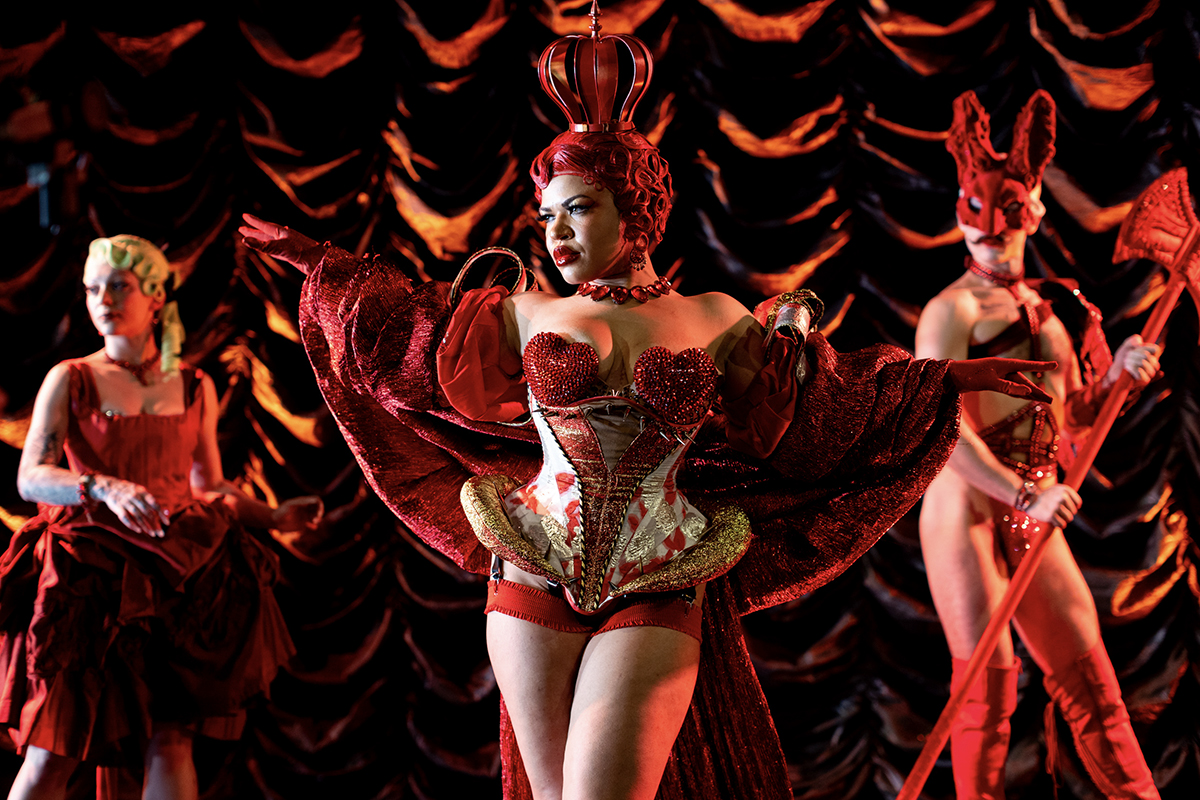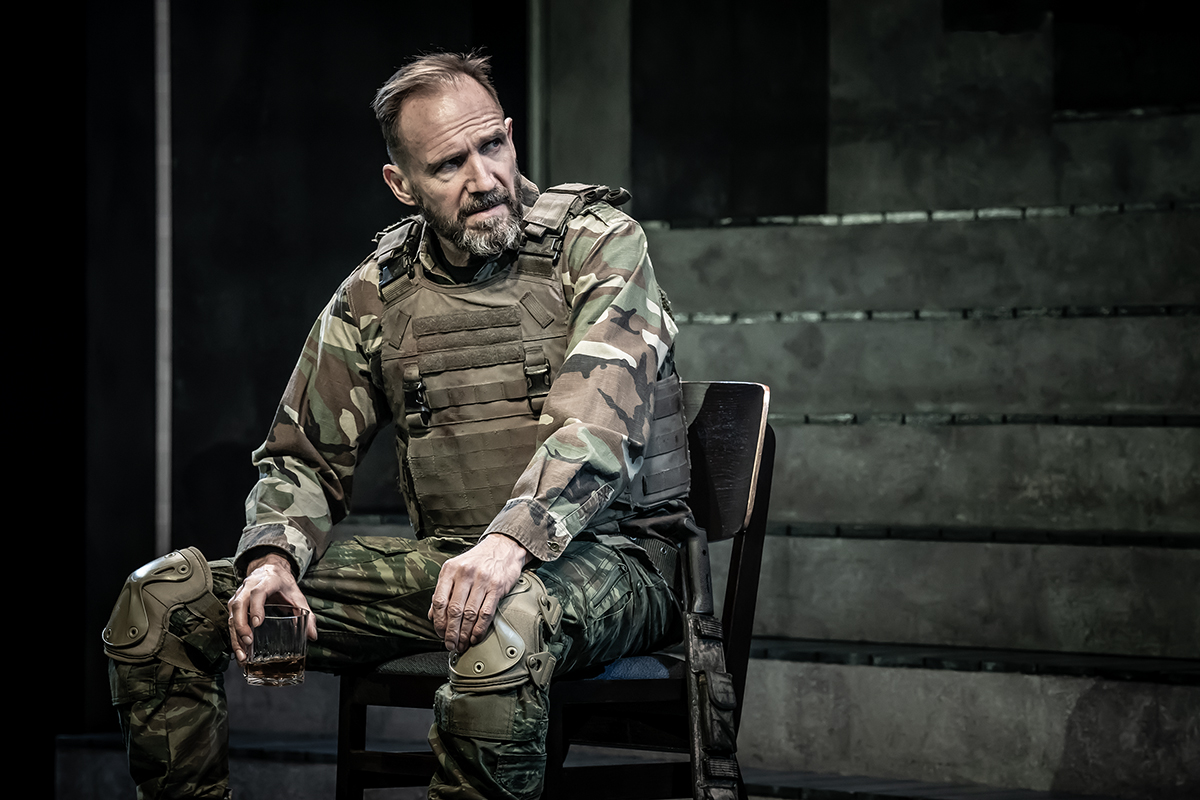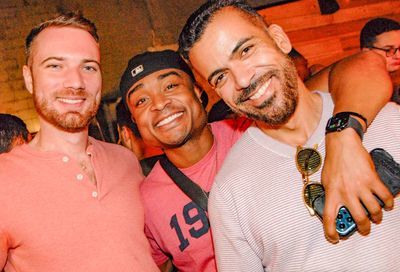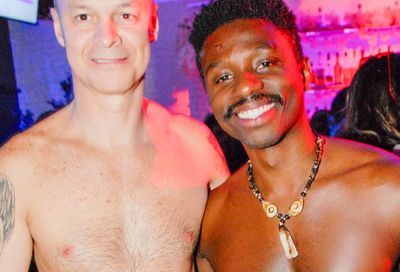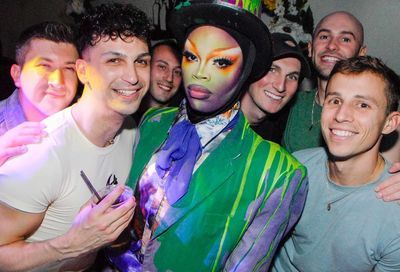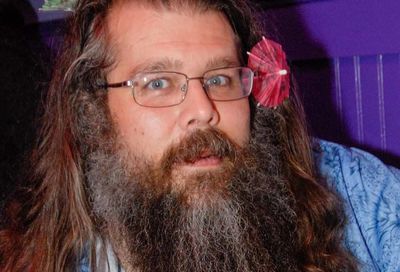Stage Presence: Motivating Fences
Michael Sainte-Andress takes the lead in August Wilson's 'Fences' at Port City Playhouse
“I didn’t audition for Troy because I didn’t think I would be considered for Troy.”
Michael Sainte-Andress is referring to the leading character in Fences, part of the August Wilson canon of dramatic works that chronicle, decade by decade, the African-American experience in this country. Troy, an embittered man whose hopes of being a baseball star were dashed long ago, was originally portrayed on Broadway by James Earl Jones. Sainte-Andress may not have the booming “Welcome to Verizon” voice, but he certainly has the stature.
“I went to audition for the role of Troy’s brother,” says Sainte-Andress, “and the director Ed Bishop pulled me aside and said, ‘Why didn’t you audition for Troy?’ I told him, ‘Well, I didn’t think I’d be looked at as Troy material.’ He said, ‘Why not? You’re the right age. You’re certainly big enough. Why don’t you think you could be Troy?’ I just said, ‘Well…’ And he said, ‘You don’t think you’re a good enough actor? I want you to read for Troy. So come back in here and read for Troy.'”
After the audition, Bishop was direct. “I want you in the play, But I’ll only cast you as Troy,” he told Sainte-Andress. “If you’re not going to be Troy then I won’t cast you at all.”
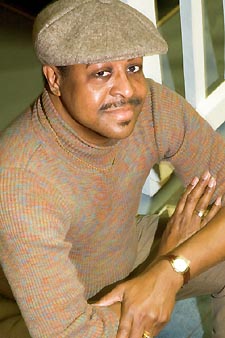 |
Sainte-Andress, stunned, accepted the role.
And then the terror set in.
“You would think,” he says in a voice soft as silk, “that you would automatically get this enormous swelled pride and great confidence. But it had quite the opposite effect on me. I was immediately frightened because I realized this play rests on the shoulders of this character. Can I do this? I’ve never had this amount of responsibility as an actor. It was very intimidating.”
But Sainte-Andress, well known to gay audience for his spectacular turn eight years ago in the one-person show Conversations with a Diva, faced the challenge head on.
“This is the kind of stuff I should be doing,” he says, “I thought I’m either going to be able to rise to the challenge and move myself to the next level as an actor or it’s not going to happen. And I must tell you, I think I’m going to give the performance of my life.”
Clearly, the fear has subsided.
For Troy’s characterization, Sainte-Andress drew on memories of his stepfather with whom he claims to have had a difficult relationship.
“He was the one human being I came closest to hating in my life because of his violence, and his mistreatment of my mother and my [siblings],” says Sainte-Andress. “He brought violence into our home and was very cruel. And for the life of me, I never understood why my mother, who was a very intelligent, beautiful, independent woman, allowed this man to dominate her and brutalize her. He never provided for her. She always worked. Everything we ever had, my mother was the one who did it for us. So she never needed this man to take care of her.
“Years later my sister told me, ‘Mama told me it was because of the sex.’ And I’m so sorry my sister told me that, because all those years my mother was so taken by this man because of his physicality that she allowed it to override the safety of her children. It changed my opinion of my mother dramatically. And so I’m glad she was dead when I found that out because had she still been alive, I’m not sure what I may have said to her. That would have been an ugly thing.”
Sainte-Andress is a big, strapping man. But he’s also considerably effete. Still, he’s never feared being typecast.
“My experience as a gay person,” he explains, “is not typical. I didn’t grow up with any restrictions about expressing myself — and that’s unusual because I come from a West Indian family. West Indians tend to be some of the most homophobic people, particularly the men. My family just accepted me. They were empathetic to me. I was allowed to be who I was — a very effeminate boy. I wasn’t really a sissy because I would fight — I held my own. So I wasn’t your typical little sissy boy. I did girlish things but I could get out there and play football and run and hop and skip and jump with the best of them. And I was the oldest brother of nine boys so I was the nurturer. I took care of my younger brothers, who looked up to me as their protector. So when I was growing up, I never had this idea that being what I was was something I had to be ashamed of.
“And one of the reasons I’ve been so successful in the D.C. theater is because I was the one black actor who, when those gay roles came up, was willing to play them. Other actors wouldn’t do it because of the fear of typecasting. I never had that fear because I had never had that fear about myself in my own life.”
Working in theater has allowed Sainte-Andress affirmation of his greatest dream.
“As a child, I knew that I wanted to express myself as an artist,” he says. “I really wanted to be a dancer but that wasn’t available to me growing up in the segregated South in the ’50s and ’60s in Houston, Texas. I wasn’t able to start working on becoming a dancer until I got to college and was away from my family and, well, that’s kind of late for a dancer. But the acting thing has allowed me to keep a dream alive. I’m 55 and I’m just now starting to approach the reality of this dream in a way that really makes it seem like ‘Wow, this really can happen.’ You never know when the tide will turn. That’s why you have to truly believe in yourself. You have to be tenacious, you have to keep on going, you have to keep looking for ways to make it happen. Theater is not for people who are thin skinned. It’s not for people who can’t take rejection. It’s not for people who get easily dissuaded or discouraged, because if that happens you may as well just save yourself a lot of wear and tear and just get out of it because you get disappointed.
“You have to be your own ‘pat-on-the-backer.’ You have to find your own sources of encouragement. I’m a Christian, a very spiritual person. I have a strong family, I have good friends, people who are very supportive. I have a balance in my life. The acting is great but I’m involved working with the AIDS community, I’m involved with literacy in the public schools, arts in the public schools. I have other things in my life that give it a balance so that I’m a whole person. If the acting thing works out that will be wonderful. If it doesn’t, I already have a life that’s in place, that’s doing important, good things that give my life meaning. That is what sustains me overall. I have a whole life. Acting is a very significant part of it, but it’s not all of it.”
Fences runs weekends through April 23 at the Port City Playhouse, 1108 Jefferson Street in Old Town, Alexandria. Call 703-838-2880 or visit http://www.telgo.com/pcp/home.html.
Support Metro Weekly’s Journalism
These are challenging times for news organizations. And yet it’s crucial we stay active and provide vital resources and information to both our local readers and the world. So won’t you please take a moment and consider supporting Metro Weekly with a membership? For as little as $5 a month, you can help ensure Metro Weekly magazine and MetroWeekly.com remain free, viable resources as we provide the best, most diverse, culturally-resonant LGBTQ coverage in both the D.C. region and around the world. Memberships come with exclusive perks and discounts, your own personal digital delivery of each week’s magazine (and an archive), access to our Member's Lounge when it launches this fall, and exclusive members-only items like Metro Weekly Membership Mugs and Tote Bags! Check out all our membership levels here and please join us today!




